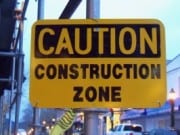Construction Law in Maine: Here are some legal issues affecting both owners and contractors involved with residential and commercial construction ventures.
I. CONTRACTS
A. Written Construction Contracts. Whether you are having work performed on your home or your business – or performing work on someone else’s home or business – it is important to have a written contract. In some cases, a written contract is legally required, such as under Maine’s Home Construction Contracts Act, discussed below. A written contract may not be required by law in certain commercial settings, or where the job is for less than $3,000. Having a written contract is extremely important, however, in avoiding future disputes, which could otherwise come at the worst possible time – in the middle of an unfinished project. All parties benefit from the process of negotiating and drafting a contract setting forth the mutual understandings and expectations. The contract should set forth the specific terms of the project, the timeframe, the scope of the work involved, and the cost and payment obligations. It should contain dispute resolution provisions, warranty and insurance information, and other project-specific clauses.
B. Insurance Policies. For contractors and other construction professionals, it is a good idea to evaluate your insurance protection when entering into contracts for construction work. Speak with your insurance agent about the scope of your coverage, generally, and any project-specific endorsements that might be required. Be sure you understand your policy limits, exclusions, and deductibles. Likewise, project owners will want to inquire about insurance coverage before hiring professionals to work on their property.
II. Maine Laws Protecting Consumers
A. Home Construction Contracts Act. (10 M.R.S.A. §§ 1486-1490). The Home Construction Contracts Act requires written contracts for home construction or renovation projects totaling more than $3,000. The written contract must contain certain key terms, including a description of the work and materials to be used, the estimated costs, the timeframe for beginning and completing the work, a warranty statement, and a method of resolving any disputes that might arise. The law also provides that the initial down payment not exceed 1/3 of the contract price. Any change in terms must be set forth in a change order signed by both parties. A model HCCA-compliant contract can be found on the Maine Attorney General’s website (http://www.portlandmaine.gov/planning/constructioncontractsample.pdf). Contractors simply using their job estimate or proposal forms for projects in excess of $3,000 are not complying with the law on the form of contract required and leave themselves vulnerable to claims later, even if their work was fine. Not using an HCCA-compliant form is risky.
B. Maine’s Unfair Trade Practice Law. (5 M.R.S.A. § 205-A -214). The Unfair Trade Practices Act (“UTPA”) makes unlawful “unfair methods of competition and unfair or deceptive acts or practices in the conduct of any trade or commerce.” 5 M.R.S.A. § 207. A contractor’s failure to comply with the HCCA might also violate the UTPA if a consumer suffers damages as a result of such violation. If a consumer can prove a violation of the UTPA, under the HCCA or otherwise, a court can award attorneys’ fees, civil penalties, and damages.
C. Warranties. The HCCA also requires an express warranty to the consumer that the work and materials used will adhere to the applicable building codes and standards, and will be constructed in a skillful manner and fit for habitation or other appropriate use. Other work-specific express warranties may be agreed upon by the parties and should be set forth in the written construction contract. Maine case law also reads into every construction contract an implied warranty that the work will be performed “in a reasonable skillful and workmanlike manner.” Gosselin v. Better Homes, Inc. 256 A.2d 294, 296.
III. Maine Law Protecting Contractors
A. Maine’s Prompt Payment Act. (10 M.R.S.A. §§ 1111-1120). Maine’s Prompt Payment Act protects subcontractors by setting forth payment deadlines for project owners and contractors on both residential and commercial construction jobs. An owner must pay the contractor within 20 days of the final billing on the project. Then, a contractor must pay the subcontractors within 7 days of receipt of any payments from the owner. Exceptions are made, allowing for withholding of payment, for good faith disputes arising under the contract.
B. Maine’s Mechanic’s Lien Statute. (10 M.R.S.A. § 3251-3269). A mechanic’s lien is a remedy for unpaid contractors, subcontractors, architects, engineers, surveyors, landscapers, real estate professionals, material and equipment suppliers, and others who are owed money for labor and materials provided on a construction project or other real property. The law is broad in that it covers a variety of projects in addition to typical building or renovation work. For example, if a homeowner has a window or a garage door installed, or heavy equipment is used on a homeowner’s property for landscaping, tree or debris removal, demolition projects, and other jobs, mechanic’s lien rights might be available to unpaid subcontractors and material and equipment providers who may have been hired without the homeowner’s knowledge.
Maine’s mechanic’s lien law can be an effective means of getting paid for real estate work performed on credit. The law allows contractors, subcontractors, suppliers, etc., to look to the real estate itself to compel payment of money owed, regardless of whether they have a contract with the property owner. The mechanic’s lien law must be strictly followed, however. Failure to comply with deadlines and other requirements for mechanic’s liens may result in the loss of lien rights.
C. Maine’s Public Works Surety Bond Law. (14 M.R.S.A. § 871). Certain construction projects are “bonded,” meaning that there is a payment and/or performance bond that acts as a type of insurance of payment and of the work being completed. Maine’s Public Works Surety Bond Law, 14 M.R.S.A. § 871, requires both payment and performance bonds, in the full amount of the contract, for any public jobs in excess of $100,000. Because Maine’s mechanics lien statute does not apply to state projects, contractors and subcontractors will want to ensure that any such government projects are bonded, as they may bring claims against the bonds for non-payment, if the strict requirements of the Surety Bond law are followed.
This article is not legal advice but should be considered as general guidance in the area of construction law in Maine.

